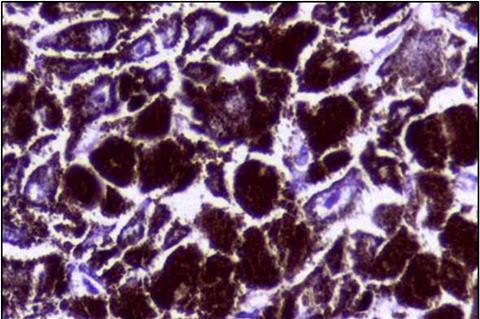Microbiotica, a clinical-stage biopharma company developing a pipeline of oral precision microbiome medicines called live biotherapeutic products (LBPs), announces that patient recruitment is complete in its advanced melanoma (MELODY-1) trial.

This international trial has recruited 41 patients at clinical centres in the UK, France, Italy, and Spain. Initial results are expected in the first half of 2026.
READ MORE: Study reveals how bacteria in microbiome medicine trigger tumor-killing cells
MELODY-1 is a Phase 1b study to evaluate the safety and tolerability of MB097 given in combination with pembrolizumab in patients with melanoma who demonstrate primary resistance to anti-PD-1 therapy. It is a first-in-human, randomised open-label clinical trial with all patients receiving MB097 and pembrolizumab for up to six months.
Half of the participants also receive vancomycin before starting the co-therapy to determine whether it helps the bacterial strains in MB097 embed and grow in the gut more efficiently. Participants benefiting from the treatment at the end of the initial six-month period may continue to receive pembrolizumab for up to an additional 18 months (approximately 24 months total).
Skin cancer
Melanoma is a life-threatening skin cancer that can spread to other parts of the body in its advanced stages. PD-1 inhibitor immunotherapies have revolutionised cancer treatment and are now commonly used to treat melanoma. However, new treatment options are still needed to extend the benefit to patients for whom immunotherapies do not work (treatment-resistant patients). This can be up to 50% of all advanced melanoma patients.
There is a growing body of evidence demonstrating that the make-up of the gut microbiome can significantly influence a patient’s ability to respond to immunotherapy.
MB097 is a once daily, orally administered LBP consisting of a defined consortium of nine strains of commensal bacteria designed to enhance the efficacy of immune checkpoint inhibitors (ICIs). The MELODY-1 study is designed to investigate the safety, tolerability, and initial signals of efficacy of MB097 in advanced (metastatic) melanoma, in combination with KEYTRUDA® (pembrolizumab), MSD’s (Merck & Co., Inc., Rahway, NJ, USA) anti-PD-1 therapy, in patients with cutaneous melanoma who have failed to respond to immunotherapies. MSD has supplied KEYTRUDA (study identifiers NCT06540391; MSD KEYNOTE-E75; 023-507377-17) to Microbiotica.
Bacterial strains
The bacterial strains in MB097 were identified by analysing the microbiome of patients in multiple studies of ICIs in melanoma, including the MELRESIST study carried out with the company’s collaborators at Cambridge University Hospitals, UK. Collectively, the MB097 bacterial consortium provides microbiome signalling that appears to be needed for ICI response.
Pre-clinical studies demonstrate that MB097 activates core pathways of the immune system including Cytotoxic T Lymphocytes and Natural Killer cells to enable them to kill tumour cells. Research to understand the mechanism of action of the nine bacterial strains has indicated that in addition to this immune-activating effect, the bacteria in MB097 produce metabolites that act directly at the site of the tumour.
Dr Robert Tansley, Microbiotica’s Chief Medical Officer, said, “It is another significant milestone that this clinical study is fully recruited. In cancer patients, the bacteria in MB097 appear to be associated with better response rates to immune checkpoint inhibitor therapies, such as anti-PD-1 drugs. MB097, with its precisely selected microbes based on data from responsive patients, in combination with ICIs, could therefore activate a therapeutic benefit for non-responding patients with advanced melanoma. Moreover, as the MB097 bacteria are found in healthy subjects as well as in patients who responded to ICIs, we anticipate a favourable safety profile. We thank the investigators and patients for participating in the study and look forward to the results.”







No comments yet